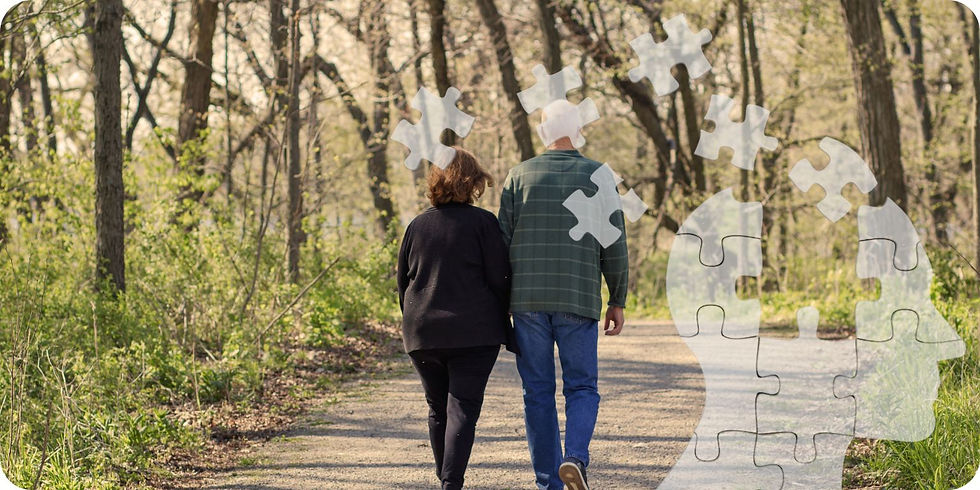Managing Pain Caused by Stress
- Brian Cassel

- Apr 15, 2024
- 4 min read

Can stress cause body aches and pains? Your first instinct might be no. But, stress can cause body aches and make recovering from injuries much more difficult.
For everyone life is full of stressful situations. And stress can cause body aches and pains.
The little aches and slight pains may be different, but they add up and stress can take it’s toll on our knees, back, shoulder and neck which often show the most severe signs of pain.
You may feel stress from your work life, struggling to meet a deadline, managing finances or perhaps at home – something as simple as getting the kids out the door and to school in the mornings (ok, maybe that’s something NOT so simple).
Research shows that seven out of ten adults say they experience stress or anxiety daily, and most say it interferes at least moderately with their lives.
Stress has become such a part of daily life that many people don’t realize it’s a problem until symptoms become unbearable, causing aches and pains, and sometimes it even becomes irreversible.
Stress affects the body in a variety of ways, from mood swings and headaches to weight fluctuations. However, an overlooked side effect of stress is body aches and pains – many people suffer from neck and back pain. Over time, repetitive bouts of stress can cause musculoskeletal issues in these areas.
When we get stressed, the body releases certain hormones. Adrenaline heightens our blood pressure, increases our blood supply, and causes the muscles around our spine to tense and spasm in case we need to flee the source of the stress. Cortisol is known as the stress hormone; it interferes with a variety of functions. Elevations in cortisol can lead to loss of muscle mass and increases in fat accumulation.
Managing Pain, Stress and Long-term Joint Health

Aches and pains are common symptoms of stress. However, having to manage ongoing pain caused by stress or stiffness may be a sign of a more serious problem.
Autoimmune diseases cause your immune system to produce antibodies which attack and damage the body’s healthy tissue instead of fighting infection. In certain conditions, such as rheumatoid arthritis, the antibodies attach to connective tissue within the joints leading to pain, stiffness, swelling, and potentially permanent joint damage.
Autoimmune diseases are often incurable. However, early intervention and treatment can help prevent further damage and joint deterioration.
Stress and Anxiety Symptoms
Stress can cause havoc on your mind and body. In small doses, the stress response can improve alertness and sharpen senses; however, chronic stress can lead to serious problems such as cardiovascular disease, gastrointestinal problems, and autoimmune disease.
The physical symptoms can include aches, pains, and tension, insomnia, headaches, chest pain, nervousness, digestive problems, low energy levels, regular colds, or infections.
Reducing Pain Caused by Stress

We can’t completely remove stress from our lives, but there are ways to ease symptoms and reduce the threat of stress causing joint pains.
Try to spot triggers
Write notes and look for patterns. Once you’ve identified them, try to find ways around them.
Eat well
A healthy diet is essential in maintaining a healthy weight. When you eat well long term, your general health can improve, and you will feel more energetic. Healthy eating is key to weight loss and achieving and maintaining a healthy weight offloads pressure from your spine and improves your posture.
Ask for help
You’re not alone. Ask for help. It is readily available.
Stay Active, Mobile and Healthy
Exercise plays an important role in both mental and physical health. Incorporate walking, yoga, or other activities into your daily routine.
Limit alcohol and caffeine
Both can intensify anxiety and joint pain. Ensure you drink plenty of water.
Stay positive
Try to look at the bright side of things. It’s not easy at times, but your body will thank you.
Cut out the bad habits
Unhealthy options that some people claim can relieve stress, such as drinking or smoking, can stress you out more. The long-term physical and mental consequences of these choices do not outweigh the temporary benefits of distraction from the pain.
The Fastest Way to Ease Your Aches and Pains
It is difficult to determine whether stress is the cause of your aches and pains, because it’s something that’s harder to detect, and measure. However, if you’ve suffered with muscular problems, stiff joints, or limited mobility for more than 8 weeks without improvement, stress could be a factor stopping your recovery.
At the Doylestown Sports Medicine Center, our expert clinical team can help to quickly assess the root cause of your issue, and then provide hands on treatment to resolve the issue so you can get back to doing what you love to do.
To get started, there are a number of options
For more back pain tips, download a copy of our FREE back pain report and discover

"11 Quick and Easy Ways to Ease Nagging Back Pain from Disrupting Your Day!”
Click Below to Download Your FREE Back Pain Report
Or Click below to Read More Back Pain Blogs
Or if you are in pain right now, and want more than free health tips, arrange a FREE back pain consultation where you can speak to a member of our physical therapy team.


